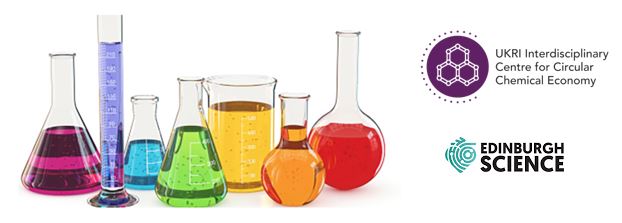Published:

As part of our engagement activities, we are excited to share that our UKRI CircularChem team will be at the Edinburgh Science Festival on Saturday, 9th April in the National Museum of Scotland.
The UKRI Interdisciplinary Centre for Circular Chemical Economy team, are focusing on converting the waste materials such as plastics, industrial waste gas, food waste, or any other type of waste into chemical monomers, thereby reducing the reliance on fossil sources and creating a circular chemical economy.
Associate Professor of Finance Bing Xu who leads on “Policy, Society and Finance” Theme said: “The Edinburgh Science Festival offers a great platform for us to provide an insight to the children, and adults on how the linear chemical economy can be made circular in practice, to increase the attention and positive attitudes towards to sustainable products and recycling.”
While many won't think about it, most of us will interact with the chemical industry on a daily basis e.g. cosmetics, anti-perspirants, cookware the shampoo you used in the shower, the plastic bags you used for shopping, the lubricants that keep your car running, and in the agricultural systems that put food on your table, to name but a few.
The problem is that chemical sector is highly linear relies on a “take-make-use-dispose” model, in which 80% of chemicals are derived from fossil resources makes it the second-largest industrial emitter of carbon dioxide in the UK. Furthermore, the end chemical goods (e.g., plastics) often find their way into the environment after they have been used.
The interactive activities will teach children and adults about what chemicals we are using, how we can rescue them, and how it all links to the climate crisis!
Edinburgh Science Foundation is an educational charity, founded in 1989, which operates Edinburgh Science's Education and Festival programmes. They are best known for organising Edinburgh's annual Science Festival – the world's first public celebration of science and technology as a festival and still one of Europe's largest – as well as our science education outreach programmes, Generation Science and Careers Hive and our community engagement work.